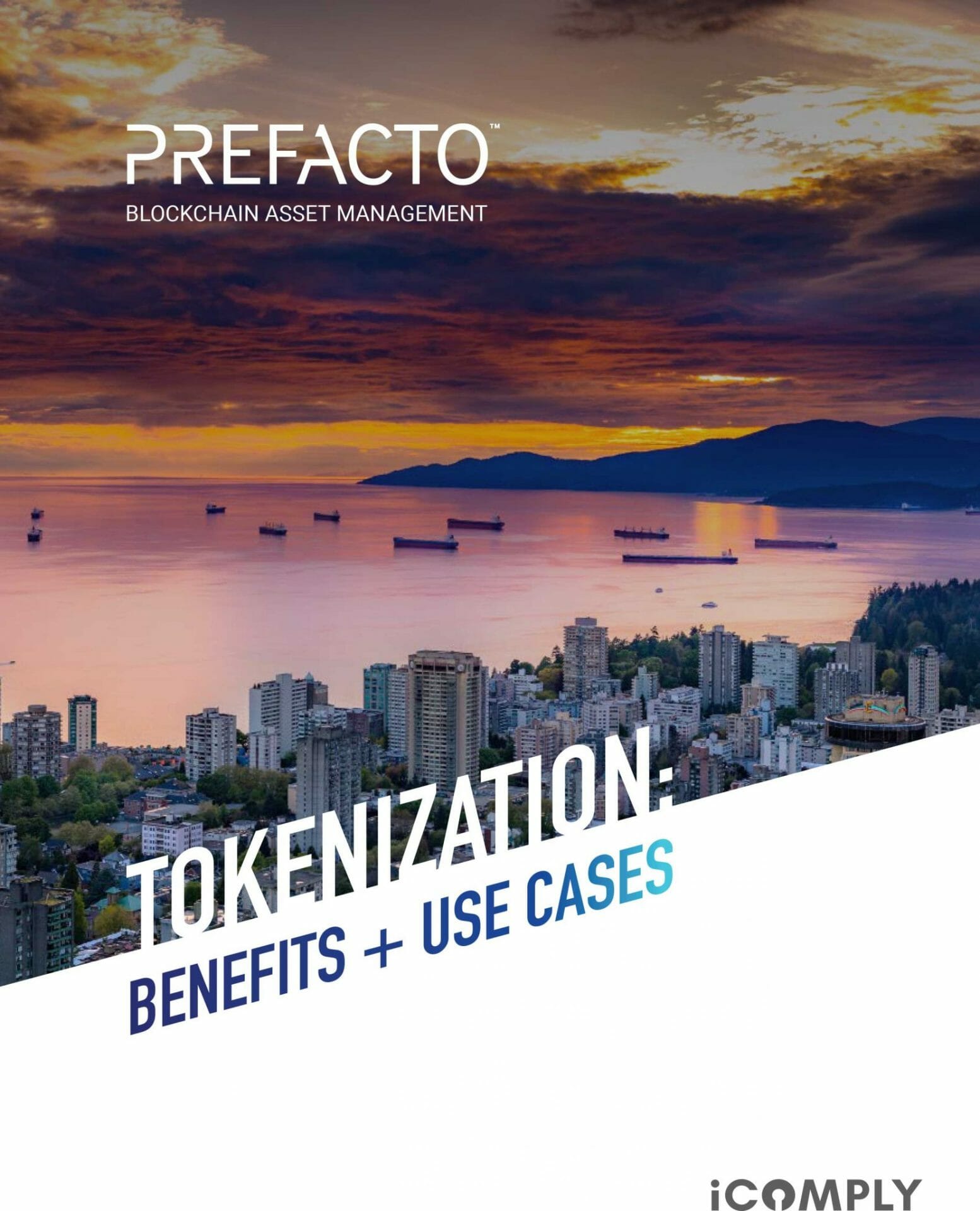Digital Securities: Benefits & Use Cases – Free Resource

Blockchain technology is becoming ubiquitous in today’s world–including the world of traditional finance. Global personal wealth surpassed US$200 trillion in 2017, and it’s expected to grow by 7% (CAGR) every year until 2022.
In such a widening pool of available capital, the B2B finance and private markets are ripe for investors to capitalize on new opportunities and for financial institutions to leverage new innovations for wealth management.
This September, iComply Investor Services Inc. released a new report, Tokenization: Benefits & Use Cases, a comprehensive overview of the Tokenization use cases that exist for digital asset in the traditional financial markets today.
From shareholder equity and corporate bonds to real estate and physical commodities, tokenization of traditional and complex investment products is already happening.
Covering such basics as “What is the legal status of a smart contract?” and “What is a token?”, this resource can help you gain a foundational understanding of this rapidly emerging trend in global private markets.
Blockchain technology is empowering the global financial markets to capitalize on digital investment opportunities–and can be harnessed in your own company.
Learn how tokenization is being used today, and the potential benefits it can add to your company’s bottom line. You would not want to be without this resource on blockchain for regulated asset management.
Contact us at [email protected] and a member of our team will reach out to explain how tokenization can work for you.
iComply Investor Services (iComply) is an industry leading and award winning Regtech (regulatory technology) company specializing in compliance automation for digital finance. Our suite of enterprise solutions helps companies overcome the cost and complexity of multi-jurisdictional compliance to effectively access new markets and opportunities.






